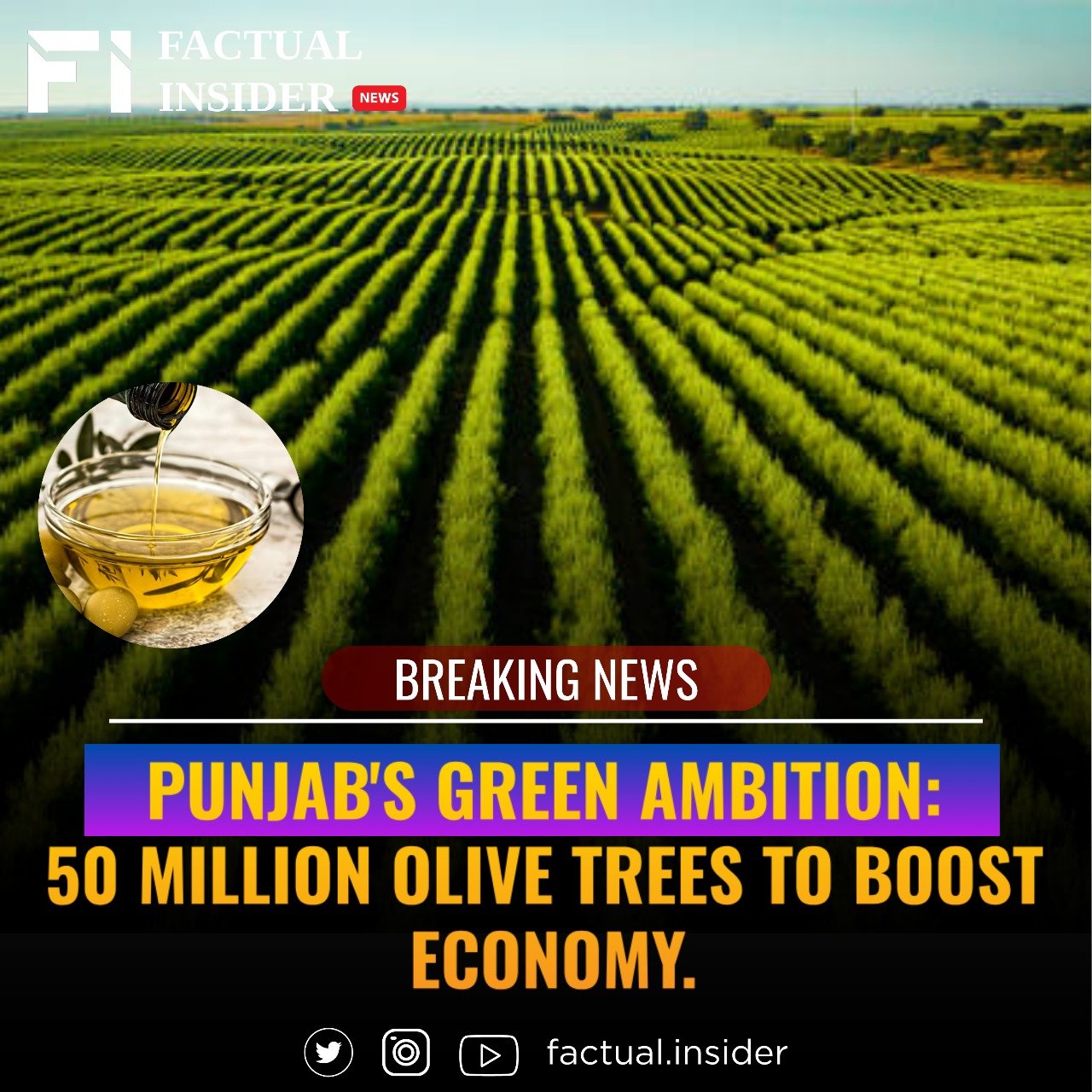The Punjab government has unveiled an ambitious plan to cultivate 50 million olive trees across 10 million acres by 2026. This initiative aims to reduce Pakistan’s annual expenditure of approximately $4.5 billion on edible oil imports.Olive Growing Project Director Azeem Tariq emphasized that this endeavor will not only fulfill local edible oil needs but also generate employment opportunities and alleviate poverty. He highlighted the importance of raising awareness, providing training, and enhancing infrastructure to support the sector, including tools, quality testing, storage, packaging, and marketing facilities.
Pakistan became the 19th member of the International Olive Council (IOC) in 2022 and exported virgin and extra virgin olive oil worth $1.9 million. The country currently has 80 million wild olive trees and 5 million cultivated ones. The Pothohar region in Punjab, as well as areas in Khyber Pakhtunkhwa and Balochistan, are particularly suitable for olive farming due to their climate and land conditions.Key initiatives include establishing new olive processing mills, the “50 Million Olive Tree” project, and the “Promotion of Olive Cultivation for Economic Development and Poverty Alleviation” project.
These projects aim to significantly boost production capacity, enhance self-reliance, and create sustainable economic growth opportunities.This strategic move aligns with Pakistan’s efforts to achieve self-sufficiency in edible oil production and reduce reliance on imports, thereby strengthening the nation’s agricultural sector and economy.



